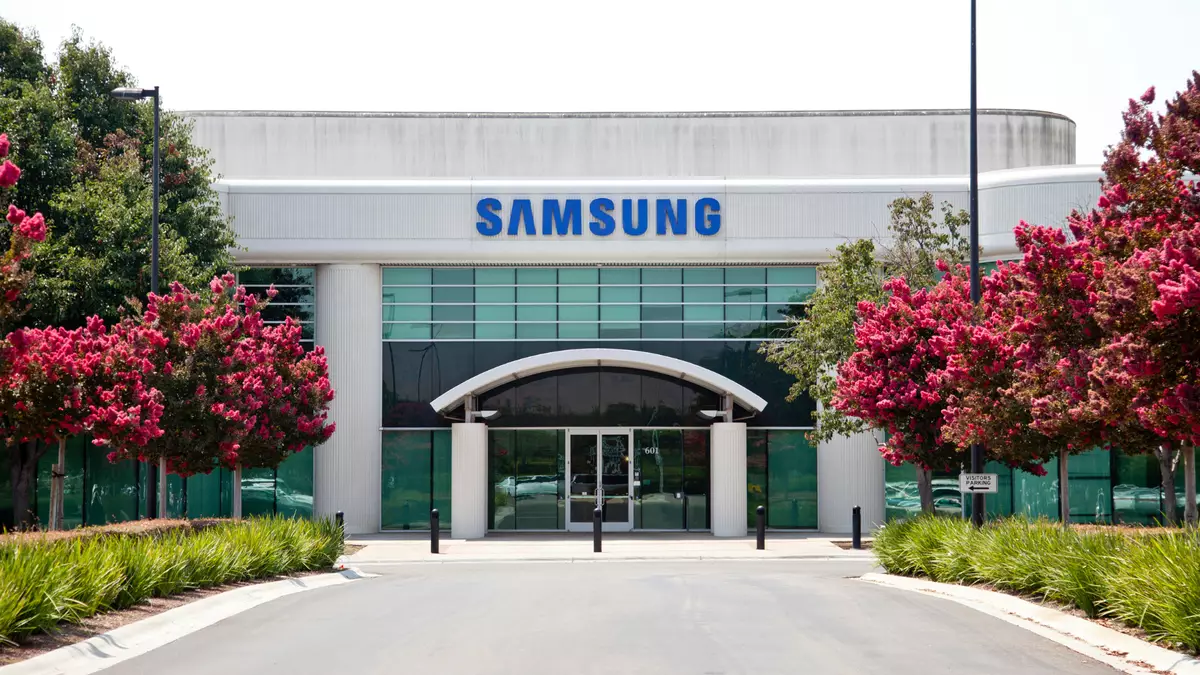The ongoing evolution of global trade policies, particularly from the United States, has triggered a consequential ripple effect among tech giants and manufacturers alike. Samsung, a veteran player in the electronics market, is currently navigating through the turbulent waters of U.S. tariffs with unexpected success. Recent insights indicate that consumers, wary of impending price hikes due to tariffs, have flooded the market with preemptive purchases of memory chips and mobile phones. This strategic buying behavior stems from a genuine concern over future pricing as tariffs are poised to disrupt the supply chain significantly.
Analysts have noted that Samsung’s operating profit shot up to an impressive 6.6 trillion won (approximately $4.47 billion) during the first quarter of this year. This figure surpasses previous estimates by a substantial margin. For many companies, including Samsung, the forecast for the upcoming quarters is laden with uncertainty. While the first quarter brought about a temporary uplift in sales, the looming specter of tariffs is causing manufacturers to rethink their inventory strategies.
The Just-in-Time Manufacturing Strategy at a Crossroads
Traditionally, various tech companies have adopted a Just-in-Time (JIT) manufacturing methodology, minimizing inventory costs by procuring supplies only as needed. However, the current climate of tariff uncertainty might compel many in the sector to pivot towards stockpiling resources. Greg Roh, Head of Research at Hyundai Motor Securities, pointed out the unusual spike in memory chip shipments, attributing it to businesses scrambling to secure components before prices rise.
What lies ahead might be a shift in operational paradigms; while JIT has its merits in terms of efficiency, companies may find themselves forced to “hoard” inventory as a defense against encroaching tariffs. The ramifications of this shift could be tremendous, leading to potential shortages and bottlenecks in the supply chain as businesses grapple with fluctuating costs.
Tariffs: Boon for Samsung, But a Double-Edged Sword
With escalating tariffs imposed by the Trump administration, significant economic repercussions loom, not only for manufacturers in the U.S. but also for those operating in countries such as Vietnam, China, and Taiwan. The immediate boon to Samsung’s sales could be overshadowed by long-term implications. As tariffs hit consumer electronic products, the costs could be passed down the supply chain, ultimately affecting retail prices and consumer demand.
The stark reality is that raising prices without a corresponding increase in profit margins can lead to a detrimental cycle of reduced demand. Samsung and others may experience an initial surge in profits but could face bleak prospects if consumer purchase behaviors begin to normalize as shoppers recoil from inflated prices.
Broader Implications for the Tech Industry
As Samsung consolidates its sales revenues, the repercussions are staggering across the broader tech industry. Brands like Nintendo are also re-evaluating their pricing strategies in response to the evolving tariffs. The delay in pre-orders for the upcoming Nintendo Switch 2 showcases how quickly businesses are adapting. They live in constant anticipation of tariff-related changes that could necessitate constant reassessment of pricing.
Framework’s recent announcement about withdrawing cheaper versions of its modular laptops exemplifies the tough decisions manufacturers must make to stay afloat. Competing in an ecosystem where prices fluctuate due to external pressures poses unique challenges. If the cost of producing laptops rises—either through tariffs or increased component prices—companies may be forced to sacrifice profitable items or risk financial losses.
At this juncture, the tech landscape is characterized by unpredictability. Companies must not only contend with immediate financial implications but anticipate how consumer behavior shifts in reaction to price changes. As both manufacturers and consumers operate in this environment of uncertainty, the need for nimble strategies and quick decision-making becomes a matter of survival.
The truth is, the tech industry stands on the brink of a significant transformation, a dynamic shift influenced predominantly by trade policy and consumer sentiment. While Samsung has capitalized on the initial outcomes of tariffs, the greater challenge remains: how to sustain growth and manage costs in a world that feels increasingly volatile. The ultimate test for these industry players will be their adaptability to a landscape forever altered by tariffs and trade tensions.

